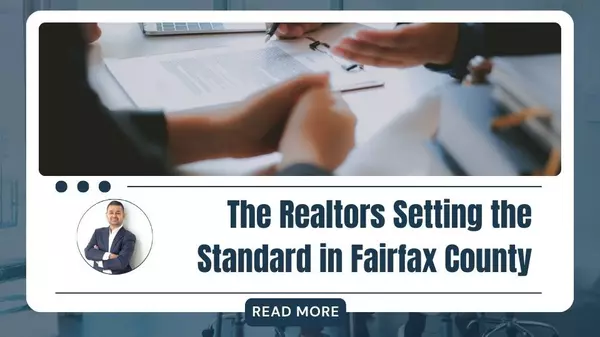Virginia’s 2025 Real Estate Law Updates You Should Understand
As the seasons change in Virginia, so too do its laws. For homeowners, buyers, and sellers across the state—especially in places like Loudoun, Prince William, Fairfax, and beyond—2025 brings several significant real estate law updates you should be aware of. These changes affect transactions, disclosures, inspections, representation, and more.
Understanding them now can save you headaches down the road, help you plan smarter, and ensure your deals stay compliant. Let’s walk through the key updates, what they mean, and how you can be ready.

Navigate These Changes with an Expert
Don't get caught off guard. Let's discuss how these new laws affect your sale.
Our 1.5% full-service listing program ensures you stay compliant while saving thousands.
Get a Free ConsultationWhat’s Changing in 2025: Key Real Estate Law Updates in Virginia
Here are the major new laws and regulatory shifts taking effect July 1, 2025 (unless otherwise noted) that impact real estate transactions in Virginia:
1. Revised Disclosure & New Form Requirements
The Virginia Department of Professional & Occupational Regulation (DPOR) has rolled out revised disclosure forms, including a new version of the Residential Property Disclosure Statement. In addition, standard real estate contract forms have been updated to reflect new provisions for VA loan assumption, new deadlines, and clearer disclosure timing rules. Using an old form could delay or invalidate parts of a transaction.
2. Septic System Inspection Standards
HB 2671 sets minimum standards for what must be included in a septic inspection. The inspection must cover all readily accessible components, and rod-and-probe reports no longer satisfy the minimum standard. This ensures inspections are more thorough and reliable.
3. Written Buyer Representation Agreements Required
Virginia now requires licensees representing buyers to have a written agreement in place before showing property (HB 1684 / SB 1309). This closes a transparency gap, as agents must disclose relationships, compensation, and duties clearly in writing before showings begin.
4. Expanded Stormwater & Easement Powers
Localities now have broader rights to enter private property for stormwater inspections and enforcement under changes to the Virginia Erosion and Stormwater Management Act. This affects properties with underground drainage, shared storm systems, or retention ponds.
5. Increased Court Jurisdiction & Civil Process Tweaks
Virginia has raised the jurisdictional limit in general district courts from $25,000 to $50,000 (SB 1291). This means more mid-value property disputes can be handled in lower courts, which can be faster and less costly.
6. No More License Transfer Fees Within Same Brokerage
DPOR is now prohibited from charging a transfer fee when a licensee moves between offices of the same firm (HB 1653 / SB 785), a helpful change for agents and brokers.
7. Common Interest Community (CIC) & HOA Changes
New bills impact HOAs by requiring resale certificates to disclose potential buyer responsibility for insurance deductibles, prohibiting the requirement of a buyer's name before issuing a resale certificate, and adding measures to prevent deed fraud.
What These Changes Mean for You (Homeowners, Buyers & Sellers)
Knowing law changes is one thing. Understanding how they affect your deal is another. Here’s what these updates mean in real-world terms:
- ✓ Use the Right Forms: Your agent must use updated disclosure and contract forms after July 1, 2025.
- ✓ Septic Properties Need Extra Care: Expect more robust inspections and documentation for septic systems.
- ✓ Buyer Agreements Add Clarity: Buyers must sign a representation agreement before touring homes.
- ✓ Stormwater & Easement Risks: Anticipate more scrutiny from local governments regarding drainage systems.
- ✓ Dispute Resolution Is Easier: More mid-level contract claims can be resolved faster in general district court.
- ✓ HOA & Association Risk Management: Expect more detailed disclosures regarding insurance deductibles and resale responsibilities.
How to Prepare & Protect Yourself
- ✓ Work with an educated agent or attorney familiar with 2025 changes.
- ✓ Ask for the latest forms and ensure all contracts are updated properly.
- ✓ Hire thorough inspectors, especially for septic and drainage systems.
- ✓ Get full HOA documents and review new disclosures.
- ✓ Document property systems and maintenance for transparency.
- ✓ Read your buyer agreement carefully to know your rights and agent’s duties.
FAQs (Frequently Asked Questions)
Categories
Recent Posts










Let's Connect

